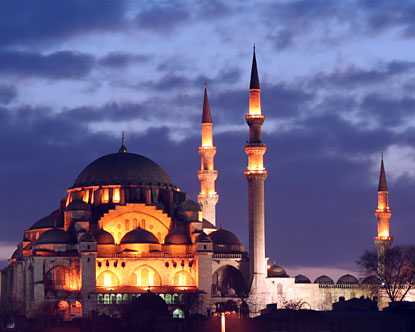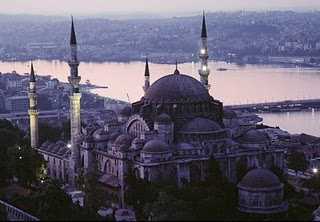In the 17th and early 18th centuries Sweden was the most feared “superpower,” as unbelievable as that sounds today. The young King Charles XII, who had ascended to the throne at age 16, was in possession of all the states bordering on the Baltic Sea after winning some stunning military campaigns. He even defeated Peter the Great at Narva. However, that battle was his undoing, because Peter the Great retrenched his army and a few years later delivered a decisive defeat to Charles at Poltava. The Swedish king barely saved his life by escaping on horseback to his ally in Turkey.
This incident highlights a long-standing alliance between the northernmost and southernmost kingdoms of Europe, forged together by their mutual enmity with Russia. This alliance had, in fact, been cemented by a Jewish ambassador of Sultan Mohammad IV, Moshe ben Yehuda Bebri, or, by his Turkish title, Aslan Aga, who had twice visited Charles’ father, Charles XI. On his voyage back to Turkey, he died in Amsterdam, where his monumental marble tombstone can still be seen today in the Portuguese-Jewish cemetery. (I recently published a study on this forgotten Jewish hero).
At the beginning of his reign, Charles XII demonstrated his interest in the Middle East, by sending Sweden’s leading professor of Oriental languages, Michael Eneman, on an exploratory trip to Turkey, Palestine and Egypt. Eneman’s report, written in Old Swedish, and covering the years 1711 and 1712, is a gold mine of information about an era from which we have only few eye witness accounts by neutral observers. It was never published in English until I translated it and published it a few years ago, together with my friend, Professor Zvi Werblowsky, of the Hebrew University.
Here are some excerpts from Eneman’s report on the Jews of Smyrna, Turkey: “They number 5,000, and have the freedom to enter any trade, although they are despised by the Moslems. There is great unity among them, and in case of any controversy they turn to their own judge, Rabbi Israel ben Benveniste, of Spanish origin. His salary is the equivalent of 300 Swedish ‘Riksdaler.’ He is assisted by Rabbi Elija HaCohen, and by Rabbi Jacob. Jews will not accept food or wine from a non-Jew, partly for hygienic, partly for religious reasons. Therefore they have their own butchers and wine producers, even though they have to pay a higher price that Turks and Christians.
“Smyrna recently saw the appearance of a man, Sabathai Zevi, who claimed to be the Messiah. Jews from everywhere — Holland, Italy and the Orient — had perfect faith in his mission since they were sure that the time for G-d’s redemption of his people had come. They sold their belongings and sailed to Smyrna. Large groups of Jews arrived, which worried the Sultan. But instead of putting an immediate stop to these arrivals, he figured out a way to make money on this phenomenon. The Sultan imprisoned Sabathai Zevi near the Dardanelles. Thereupon he charged up to 10 Riksdaler from every Jew who came to visit Sabathai Zevi.
“A controversy among the Jews broke out. A Rabbi Nehemia Cohen claimed that there must be two Messiahs, one from the tribe of Ephraim, and one from the house of David. He himself aspired to being one of them. But Sabathai Zevi refuted him, claiming that only one Messiah has to come, from the house of David, and that he himself was that one. Rabbi Nehemia Cohen was angry at this, and traveled to Adrianapolis to denounce Sabathai Zevi to the Deputy Grand Vizier as a rebel against the throne of the Sultan. The Sultan thereupon called for Sabathai Zevi, and offered him a choice of either the death penalty or conversion to Islam. Zevi chose the latter, to the utter shock and shame of his Jewish followers. Despite all subsequent attempts to mediate in this scandal, no Jew was willing to accept a Messiah who wore a Moslem turban.”
Here follows part of Eneman’s report on the Jews of Jerusalem: “They still suffer from the punishments which the prophets of the Bible pronounced for abandonment of the laws of the Torah. Yet the Jews are inalterably attached to the city of Jerusalem, mainly in order to be buried there, so that they will be promptly resurrected when their Messiah comes (whom we Christians do not believe will ever come). So they prefer suffering all kinds of degradation and humiliation at the hands of the Moslems than to live in great honor in any other part of the world.
“They also adore the holiness of the ‘Kothel Mearabi’ (the Western Wall) where they are sure the ‘Shechina’ (Divine Presence) still dwells. They pray there incessantly, especially chapters 122 and 126 of the Psalms. When I asked one Jew what the wall has to do with the delayed coming of the Messiah, he answered with the verse from the Song of Songs, chapter 2, verse 9: ‘Behold he standeth behind our Wall, he looketh forth at the windows, showing himself through the lattice.’ This shows, the Jew said, that the Messiah will first appear at the wall.
“The Jews also believe that the Ark and the Cherubim are buried under the Temple Mount, because G-d opened the mountain to swallow them up when the Temple was destroyed, and he will bring them forth again in due time. Therefore, no Jew will set foot on the Temple Mount, where a large Moslem Mosque, or ‘Dgiamesi,’ has been built, because they would die if they step on such divine treasures. Therefore, the Turks are happy since they know that no Jew will come to desecrate their Mosque.
“The Jews have two synagogues, one is for the German Jews, and the other is for the French, Italian, and Spanish Jewish refugees. Both synagogues send out emissaries abroad to collect charity and alms, especially for the Jews in Jerusalem, Hebron, Safed and Tiberias. Sometimes these emissaries come back with 10-20,000 Riksdaler. Yet many of them are imprisoned by the police for non-payment of their debts. When I visited the German synagogue I only saw eight men there, in tatters, while the other synagogue is well attended by men who are very well dressed inside the synagogue, but who wear rags in the street, to avoid attention by the authorities as to their riches. As is well known, when the Crusaders captured Jerusalem in the year 1099, all the Jews were slaughtered by them, but now they are allowed back again, but in very limited and crowded quarters.”
Such an eye witness account by a Christian gives us many important details of an historic nature. It should be remembered that no Jews were allowed to live in Sweden until about 50 years after Eneman’s trip, so he had no advanced knowledge of either Jews nor of Judaism. His keen observations are therefore especially praiseworthy.
Source: www.manfredlehmann.com






